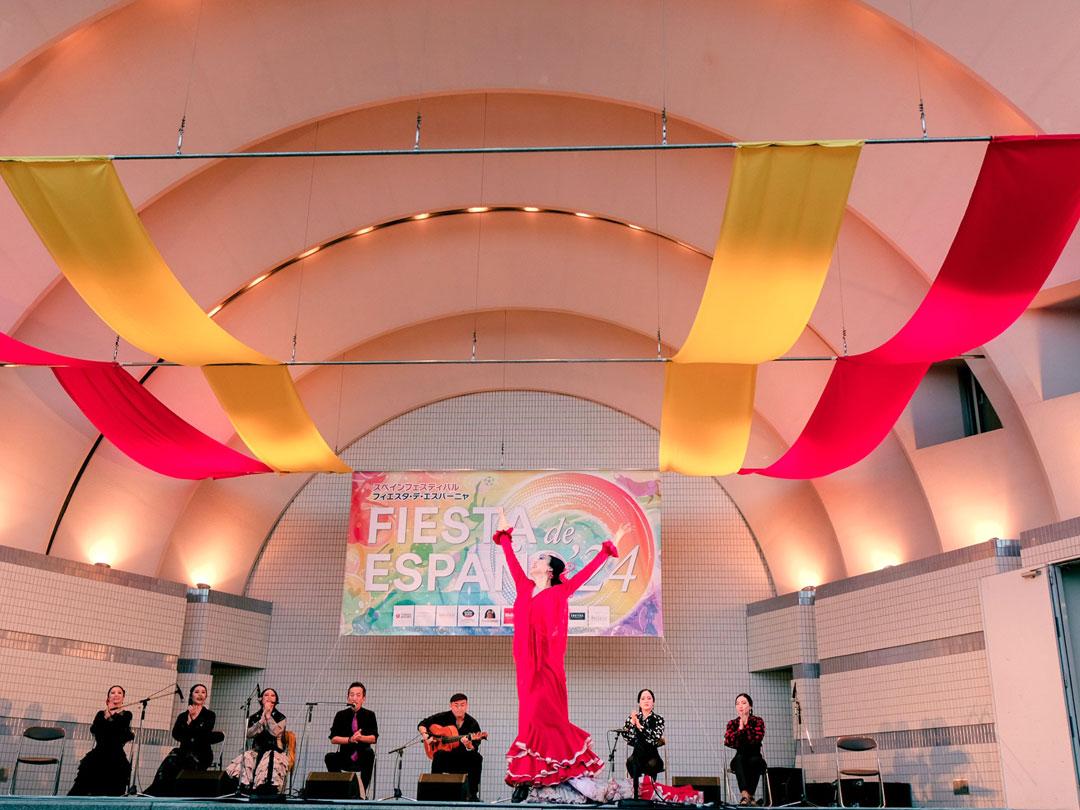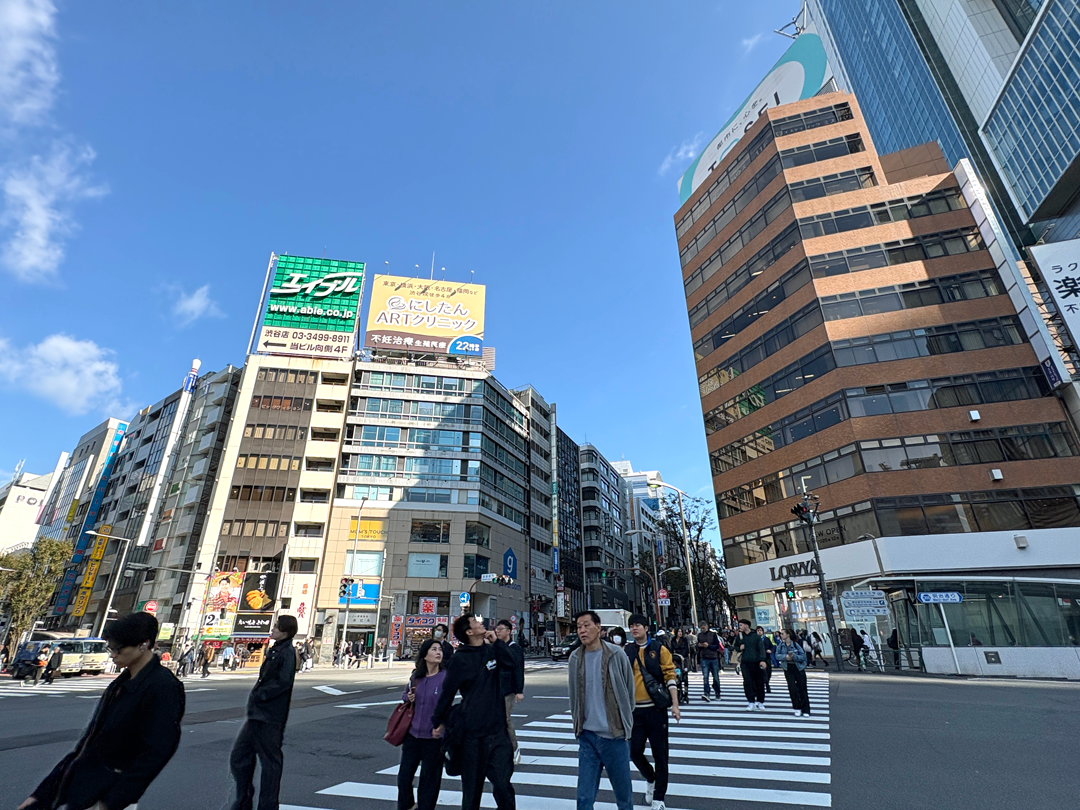SHIBUY.A. × EVENT
2025-11-28
"Can AI and bees create the future together?" - Social innovation from the perspective of the coexistence of technology and nature - (QWS Academia, Waseda University)
A program to encounter "unknown questions" in collaboration with universities
2025-11-12
Source: Peatix
[SHIBUYA QWS original program "QWS ACADEMIA"]
This is a program in collaboration with universities that allows students to encounter "unknown questions." At universities, there are students and researchers who are facing a wide variety of "questions." "QWS ACADEMIA" is not just a class where knowledge is transmitted, but aims to stimulate each other in both directions and create a chemical reaction.
■ Purpose of the event
We will hold an international session to discuss the theme of "AI x Beekeeping x Social Innovation," as a challenge to reconstruct the relationship between AI, social systems, and people.
In the first part of the event, Michael "Mike" Bronikowski, founder of the US startup BuzzHive, will be presenting his development of AI-powered smart hives and the future of urban beekeeping. From Japan, Atsuo Tanaka, vice president of the Ginza Honeybee Project, will be speaking to share his insights into Japanese-style beekeeping, which connects cities and nature. Consecutive interpretation will be provided between Japanese and English for all presentations.
In the second part, participants will be divided into English and Japanese groups to hold workshops on a variety of themes, including "AI and Biodiversity" and "Landscape and Business," exploring the coexistence of technology and nature.
If you are interested, please come and join us!
Date and time: November 28th (Friday) 13:30-16:30
■ Target audience: University and graduate students/general public
■ Capacity: 50 people
■ Participation fee: Free
■ Venue: SHIBUYA SCRAMBLE SQUARE 15th floor SHIBUYA QWS Cross Park
■Organizer: SHIBUYA QWS Innovation Council
Co-organized by: Waseda University Global Science and Knowledge Integration Institute / Kanagawa Prefectural University of Health Sciences Innovation Policy Research Center / Beyond 2020 NEXT PROJECT
■Sponsors: NPO Ginza Honeybee Project / General Incorporated Association Honeybee Project Japan
/Bass Center for Leadership Studies and Binghamton Center of Complex Systems (CoCo), Binghamton University, State University of New York
■Sponsor: Japan Society for Social Innovation
■ Program
13:10 Opening
13:25 Introduction to QWS
Moderator: Toru Asahi (Professor, Faculty of Science and Engineering, Waseda University / Director, Global Science and Knowledge Integration Institute)
13:30 Opening remarks and introduction of Associate Professor Joey Tsai, State University of New York at Binghamton
Mikiko Shimaoka (Professor, Strategic Center, Waseda University /
Professor, Graduate School of Health Innovation, Kanagawa Prefectural University of Health Sciences
Part 1 *Consecutive interpretation available
13:35 Invited Lecture: "AI Hive and BuzzHive's Vision"
Mike Bronikowski (Co-founder and CEO, BuzzHive)
14:10 Special Lecture: "Urban Beekeeping and the Power of Community"
Atsuo Tanaka (Vice Representative of the NPO Ginza Honeybee Project)
14:45 Break
Part Two
Moderator: Ayaka Matsumoto (2nd year student, Doctoral Program in Advanced Science and Engineering, Waseda University / Chief Secretary of Beyond 2020NEXT PROJECT)
14:50 Icebreaker
15:00 Group work 1
15:30 Group work 2
16:00 Group presentations (2 minutes each)
16:25 Closing remarks
Atsuko Hattori (Professor, Department of Politics and Policy Studies, Faculty of Political Science and Economics, Yamato University)
■Speaker Profile
Mike Bronikowski (Co-founder and CEO, BuzzHive)
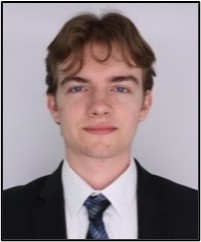
Bronikowski is the co-founder and CEO of BuzzHive (https://buzzhivetech.com/). BuzzHive is a startup that develops AI-powered smart hives to optimize pollination and honey production by monitoring and analyzing the health of honeybees. Bronikowski's mission is to "decipher the language of honeybees." They are building a system that uses solar-powered sensors to analyze temperature, humidity, and weight, as well as the buzzing of honeybees, using machine learning and AI to alert beekeepers if anything unusual happens to their colonies. This technology is a highly socially valuable approach that also contributes to protecting honeybees, which face many challenges such as climate change and pests. He is currently enrolled in a master's program at the Watson School of Computing at the State University of New York at Binghamton, majoring in AI.
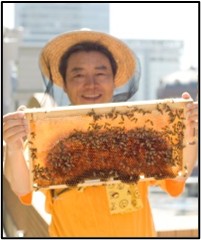
Atsuo Tanaka (Vice Representative of the NPO Ginza Honeybee Project)
With the idea that "it would be fun to harvest honey in Ginza," he launched the Ginza Honeybee Project in 2006, advocating for the revitalization of Ginza and creating a town where honeybees can live, and promoting rooftop greening. He also works hard to build face-to-face relationships with local communities. As a pioneer of urban beekeeping, he has cooperated in the launch of honeybee projects around the country, and is expanding his honeybee community throughout the country (https://gin-pachi.jp/#about_us).
■Executive Committee
Mikiko Shimaoka (Professor, Research Strategy Center, Waseda University / Professor, Graduate School of Health Innovation, Kanagawa University of Health Sciences)

After graduating from the School of Letters, Arts and Sciences I at Waseda University, he worked in a managerial position at an international NGO before becoming a specially appointed researcher at the Institute for Global Environmental Strategies (IGES). He was an assistant professor at the WBS Research Center, Faculty of Commerce, Waseda University, and an associate professor at the Research Strategy Center before assuming his current position. He received his PhD in Public Management from the Waseda University Graduate School of Public Management in 2013. He was selected for the Ministry of Education, Culture, Sports, Science and Technology's "Global Entrepreneur Development Promotion Project (EDGE Program)" and "Next Generation Entrepreneur Development Project (EDGE-NEXT)," and is involved in the management of the WASEDA-EDGE human resource development program. He received the Waseda University Teaching Award President's Award in the spring semester of 2019. In entrepreneurship education, he teaches multiple courses including design thinking and lean startup. He is also an Entrepreneurship Promotion Ambassador for the Ministry of Education, Culture, Sports, Science and Technology.
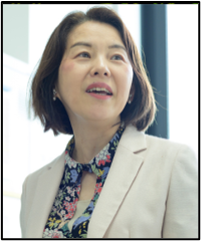
Atsuko Hattori (Professor, Department of Politics and Policy Studies, Faculty of Political Science and Economics, Yamato University)
Originally from Nara City, he completed his studies at the Graduate School of International Public Policy at Osaka University. Following the Great Hanshin-Awaji Earthquake, he participated in the Scope Project at the Graduate University for Advanced Studies, which aims to promote NPO research. He then founded the general incorporated association DSIA in 2009, where he works to promote social innovation and develop human resources. He has held various positions, including as a professor at the Faculty of Policy Studies at Doshisha University, before assuming his current position in 2025. He is also a director of the Japan Society for Social Innovation. His specialties are social innovation, social entrepreneurship, public management, and public policy.
Since 2019, the Doshisha Honeybee Lab has been offering courses involving actual beekeeping at the Doshisha Karasuma Campus, and the activities are currently being continued in Uji and Shiga.
Chou-Yu (Joey) Tsai (Osterhout Associate Professor of Entrepreneurship, School of Management, Binghamton University / State University of New York)
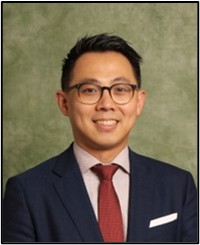
Joey Tsai is the Osterhout Associate Professor of Entrepreneurship at the School of Management, Binghamton University. He earned his B.S. and M.S. in Psychology from National Taiwan University and his Ph.D. in Leadership and Organizational Behavior from Binghamton University. Before returning to Binghamton, he served on the faculty at California State University and Penn State University. Joey’s research explores entrepreneurship and leadership, with a particular focus on how leaders and teams drive innovation and venture success. His work has appeared in leading publications, including Journal of Applied Psychology, Harvard Business Review, and Journal of Organizational Behavior. He is a recipient of the SUNY Chancellor’s Award for Excellence in Teaching. Currently, he serves as the Associate Director of the Bass Center for Leadership Studies and as a fellow at the Center for Collective Dynamics of Complex Systems. In addition, Joey serves on the editorial review board for The Leadership Quarterly and mentors student entrepreneurship teams competing in the New York State Business Plan Competition and the FuzeHub Commercialization Competition.
Toru Asahi (Professor, Faculty of Science and Engineering, Waseda University; Dean of the School of Advanced Science and Engineering; Director, Global Science and Knowledge Integration Institute)
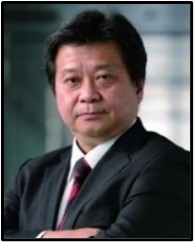
He graduated from the Department of Applied Physics, School of Science and Engineering, Waseda University in 1986, received his PhD in Science in 1992, and an MBA in 2007. In 2013, he became Director of the Institute for Advanced Science and Medical Care, Vice Director of the Nano & Life Innovation Research Organization in 2016, Director of the Waseda University Comprehensive Research Organization's Global Science and Knowledge Integration Institute in 2019, and served as Director of the W-SPRING Internship and Career Support Department and Chairman of the Life Innovation Review Committee in 2021, promoting interdisciplinary research and nurturing innovative talent. From 2024, he will become Dean and Dean of the School of Advanced Science and Engineering, Faculty of Science and Engineering, Waseda University. His research interests include chiral science, biophysics, crystal optics, functional thin films, and recycling-based food production systems.
Tomomi Kito (Professor, Graduate School of Creative Science and Engineering, Faculty of Science and Engineering, Waseda University)
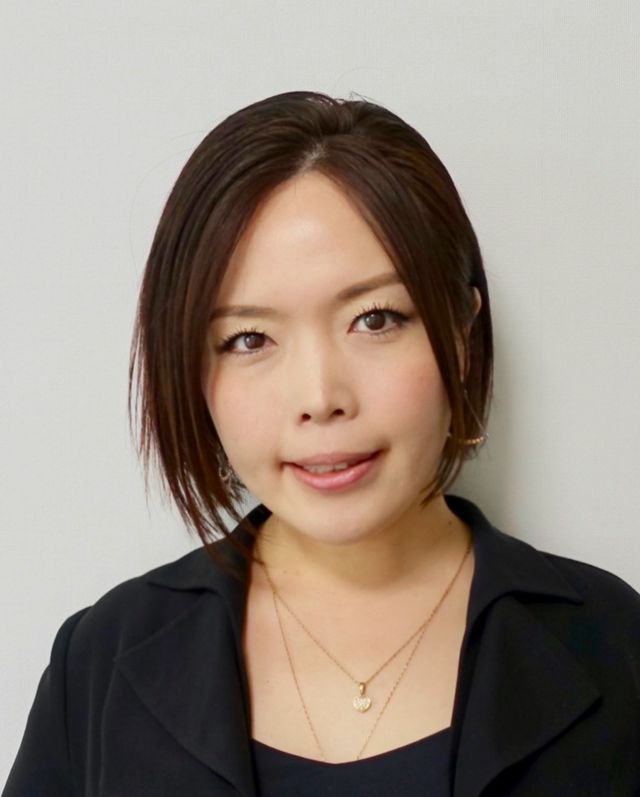
He graduated from the Faculty of Engineering at the University of Tokyo, and completed his Master's and Doctoral studies in Engineering at the Graduate School of Engineering. He is currently working on a multidisciplinary approach to realizing and sustaining various forms of value creation in a complex economic society. In recent years, he has been promoting numerous research projects focused on the future of the innovation ecosystem, including uncovering the potential of startups and emerging technologies and generating ideas through teamwork.
Ayaka Matsumoto (2nd year doctoral student, Department of Advanced Science and Engineering, Graduate School of Advanced Science and Engineering, Waseda University/Beyond 2020 NEXT PROJECT Secretary General)
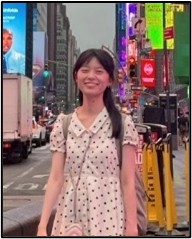
He is a member of the Biophysical Science Laboratory (Asahi Laboratory) at Waseda University. His specialties are physical chemistry, chiral science, and crystal optics. He currently works as a part-time lecturer at Waseda University Honjo Senior High School. He joined the student group Beyond 2020 NEXT PROJECT, whose mission is to foster entrepreneurship, in 2020, serving as General Affairs Manager in 2022, Secretary General from 2023, and Chief Secretary from 2025. He is also a member of the World Children's Future Conference Project, which supports the United Nations, the SDGs Education Curriculum Project, and the Entrepreneurship Education Project.
Mitsuaki Murata (3rd year doctoral student at Tokyo University of Agriculture and Technology / K-1 Task Force member)
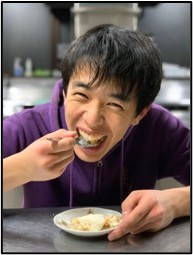
He majored in entomology at the Suzuki Laboratory at BASE, Tokyo University of Agriculture and Technology. He is currently developing food for edible crickets and conducting phylogenetic analysis of crickets. He is also interested in eating insects and has tried various insect dishes. He developed a cricket dish called Tatsuta-age, which he sold at school festivals. He developed a water supply device for crickets in Cambodia. He is a member of the K-1 Task Force, a student social implementation group for the Cabinet Office Moonshot Research and Development Project, Goal 5: "Developing a circular food production system supported by insects to solve global food problems and advance humanity into space."
Tomohiro Aihara (1st year doctoral student, Graduate School of Advanced Science and Engineering, Waseda University / K-1 Task Force Representative)
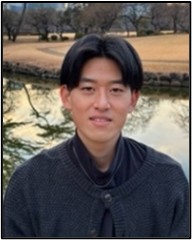
He is a member of the Insect Unit of the Biological Applications Group at the Laboratory of Biological Physical Sciences at Waseda University. He is currently working on research aimed at elucidating the cannibalistic behavior of crickets through video analysis using deep learning. He is also the representative of the K-1 Task Force, a student social implementation group working on the Cabinet Office Moonshot Research and Development Program's Goal 5 project, "Development of a circular food production system supported by insects to solve global food problems and advance humanity into space."
Nozomi Uchiki (4th year student, Department of Applied Life Sciences, Tokyo University of Agriculture and Technology)
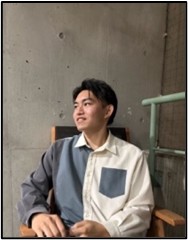
He is a member of the Food and Energy Systems Science Laboratory in the Graduate School of Bio-Systems and Applied Sciences, Department of Applied Life Sciences, Tokyo University of Agriculture and Technology. He is currently conducting research to establish the circadian rhythm of the Miyako Phytoseiid mite through video analysis and analysis of clock genes, with the aim of applying this to better biological pesticides. He is also a member of the K-1 Task Force, a student social implementation group for the Cabinet Office's Moonshot Research and Development Program, Goal 5: "Development of a circular food production system supported by insects to solve global food problems and advance humanity into space."
Rinko Hosoda (4th year student, School of Human Sciences, Waseda University)
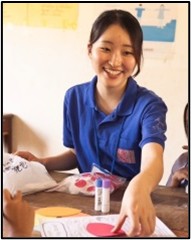
He is a member of the Department of Human Environmental Sciences, School of Human Sciences, Waseda University. He specializes in cultural anthropology and urban anthropology. He studies honeybees and their ecological environment from an anthropological perspective, visiting beekeepers across the country, from urban beekeeping to regional beekeeping. He serves as the secretary of the Laos School Construction Education Support Project, part of the Waseda University Volunteer Center WAVOC, and was an early member involved in the launch of the NPO BORDER FREE, which aims to correct educational disparities. He is currently working on building networks both inside and outside the university and planning projects, with the aim of "making beekeeping activities a reality at Waseda University."
Ryunosuke Ino (4th year student, Faculty of Marine Technology, Tokyo University of Marine Science and Technology)
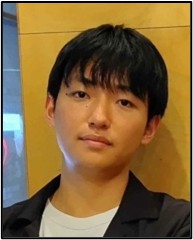
He is a member of the Hashimoto Laboratory in the Department of Logistics and Information Engineering, Faculty of Marine Technology, Tokyo University of Marine Science and Technology. His specialty is logistics, and his research field is mathematical optimization. With the theme of "maximizing the number of items that can be loaded in pallet loading," he has studied integer programming based on 2D strip packing and has developed a "selection table" that can instantly read the approximate maximum load number on a T-11 pallet from the size of the package. Through presentations and collaborative studies at research meetings both inside and outside the university, he is continually updating and strengthening his model, aiming to implement and popularize it as "usable optimization."
Masataka Yoshinami (4th year, Faculty of Marine Engineering, Tokyo University of Marine Science and Technology)

He is a member of the Department of Distribution and Information Engineering, Faculty of Marine Technology, Tokyo University of Marine Science and Technology, and is engaged in research into multi-agent simulation using reinforcement learning.
In the fields of logistics and transportation, he is building an environment using Python in which multiple autonomous agents act cooperatively, focusing particularly on cooperative behavior between vehicles. He is also working on building a three-dimensional simulation environment using Unity, aiming to run agents controlled by an AI decision-making model on a game engine. Outside of school, he is a member of the programming club "NePP" and is actively involved in game and web application development.
Kota Kinoshita (4th year student at the Faculty of Engineering, Tokyo University of Agriculture and Technology / K-1 Task Force member)
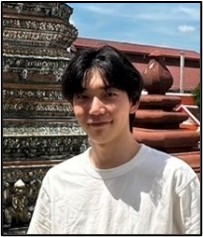
He is a member of the Department of Biotechnology, Graduate School of Engineering, Tokyo University of Agriculture and Technology. He is currently analyzing the effects of D-amino acid administration on the growth of two-spotted crickets, and is conducting research with the aim of elucidating the physiological role that D-amino acids play in insect development and metabolism. He is also a member of the K-1 Task Force, a student social implementation group for the Cabinet Office's Moonshot Research and Development Program, Goal 5: "Development of a circular food production system supported by insects to solve global food problems and advance humanity into space."
Ryokado Nagahama (4th year student at the Faculty of Engineering, Tokyo University of Agriculture and Technology / K-1 Task Force member)
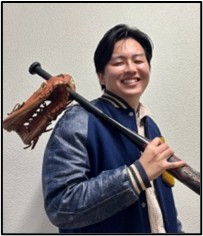
He is a member of the Department of Biotechnology, Graduate School of Engineering, Tokyo University of Agriculture and Technology. He is currently conducting multi-omics analysis of the genus Field cricket with the aim of elucidating the molecular mechanism of environmental adaptation known as "endogenous diapause," in which crickets enter a state of forced dormancy regardless of temperature or photoperiod. He is also a member of the "K-1 Task Force," a student social implementation group for the Cabinet Office's Moonshot Research and Development Program, Goal 5: "Development of a circular food production system supported by insects to solve global food problems and advance humanity into space."
Nao Ota (4th year student at the Faculty of Engineering, Tokyo University of Agriculture and Technology / K-1 Task Force member)

He is a member of the Department of Biotechnology, Graduate School of Engineering, Tokyo University of Agriculture and Technology. He is currently exploring horizontally transferred genes in the Grylloidea and examining their evolutionary significance, as well as constructing the genome of the field cricket. He is also a member of the K-1 Task Force, a student social implementation group for the Cabinet Office's Moonshot Research and Development Program, Goal 5: "Developing a circular food production system supported by insects to solve global food problems and advance humanity into space."
Sawaka Umehara (4th year student at the Faculty of Engineering, Tokyo University of Agriculture and Technology / K-1 Task Force member)
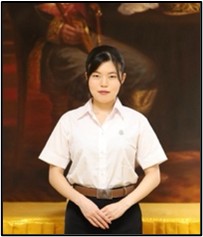
He is a member of the Department of Biotechnology, Graduate School of Engineering, Tokyo University of Agriculture and Technology. He is currently working on analyzing the dormancy mechanism and diversity of diatoms, a type of eukaryotic microalgae. He is also a member of the K-1 Task Force, a student social implementation group for the Cabinet Office's Moonshot Research and Development Program, Goal 5: "Development of a circular food production system supported by insects to solve global food problems and advance humanity into space."
Arisa Kumazawa (1st year Master's student, Humanities and Social Sciences, Ochanomizu University)
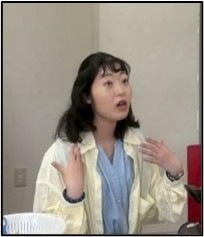
He is a member of the Food and Nutrition Science Course in the Life Sciences Department and the Nutrition Education Laboratory.
She is currently conducting research on the theme of "consumer psychology toward eating insects." Specifically, she is focusing on why people have difficulty accepting eating insects, and what kind of information can be disseminated to increase acceptance. In the past, she has also been involved in research into improving the palatability of cricket hamburgers, and is constantly considering what is needed to make eating insects a food option in the future. She is a qualified registered dietitian and nutritionist, and is active in discussions about healthy eating habits and food education at academic conferences and other venues.
Ema Akutsu (4th year student, School of International Liberal Studies, Waseda University)

A fourth-year student at the School of International Liberal Studies at Waseda University, he is majoring in Sustainability Studies and studying mechanism design using game theory in his economics seminar. He is currently conducting research on the theme of building market strategies and distribution systems to achieve more sustainable food circulation.
Outside of school, he interned at a Malaysian startup that recycles food waste using water fly. He is currently working to spread this initiative in Japan, and was selected as a semi-finalist for Tokyo Startup Gateway 2025.
Koichi Sugimoto (1st year PhD student, Department of Biological Production Science, Tokyo University of Agriculture and Technology)
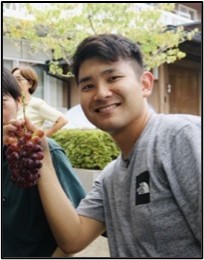
He is currently enrolled in a doctoral program at the United Graduate School of Agricultural Science, Tokyo University of Agriculture and Technology, and is a member of the Nakai Madoka Laboratory. His specialty is insect pathology, focusing on virus-host interactions and working to elucidate the mechanisms by which biological control using viruses is successful in suppressing pests. He aims to build the foundations for implementable control strategies by conducting multi-layered analysis of the differences in susceptibility between rhinoceros beetles and OrNVs, as well as the behavioral changes that accompany infection, using RNA-seq, image behavioral analysis, and mathematical models. A graduate of the Department of Mathematics, Faculty of Science, Tokyo University of Science, he is also utilizing his background in pure mathematics to conduct research on the development of a new method for identifying insect virus resistance genes in the smaller tea tortrix, a tea plant pest, using complex analysis.
【ABOUT SHIBUYA QWS】
SHIBUYA SCRAMBLE SQUARE opened on November 1, 2019, directly connected to and above Shibuya Station. SHIBUYA QWS (hereinafter QWS) is a members-only facility located on the 15th floor. With the concept of "Not just asking, not just meeting, not just creating, but changing the world," the facility aims to create a movement that leads to unknown value by intersecting the [questions] of players with diverse backgrounds.
https://shibuya-qws.com/
[Regarding the content of your responses that includes personal information]
The personal information you provide will be managed in accordance with SHIBUYA SCRAMBLE SQUARE, Ltd.'s personal information management regulations, and will be disposed of in an appropriate manner after use. https://shibuya-qws.com/privacy-policy
To apply to participate in the event
Thank you from here.
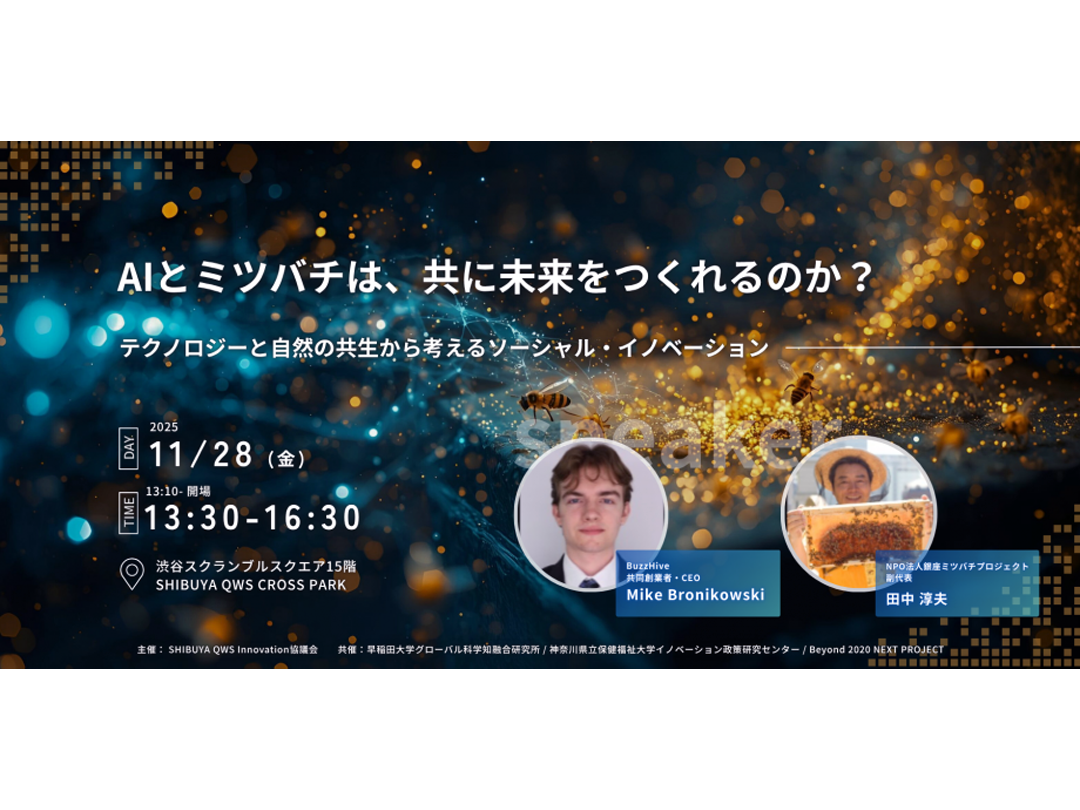
![[Shibuya] Sendai Yamagata Shigoto Lab | Sendai x Yamagata: Expanding career possibilities in the region](https://biz.shibuyabunka.com/storage/images/event/1761540527.png)

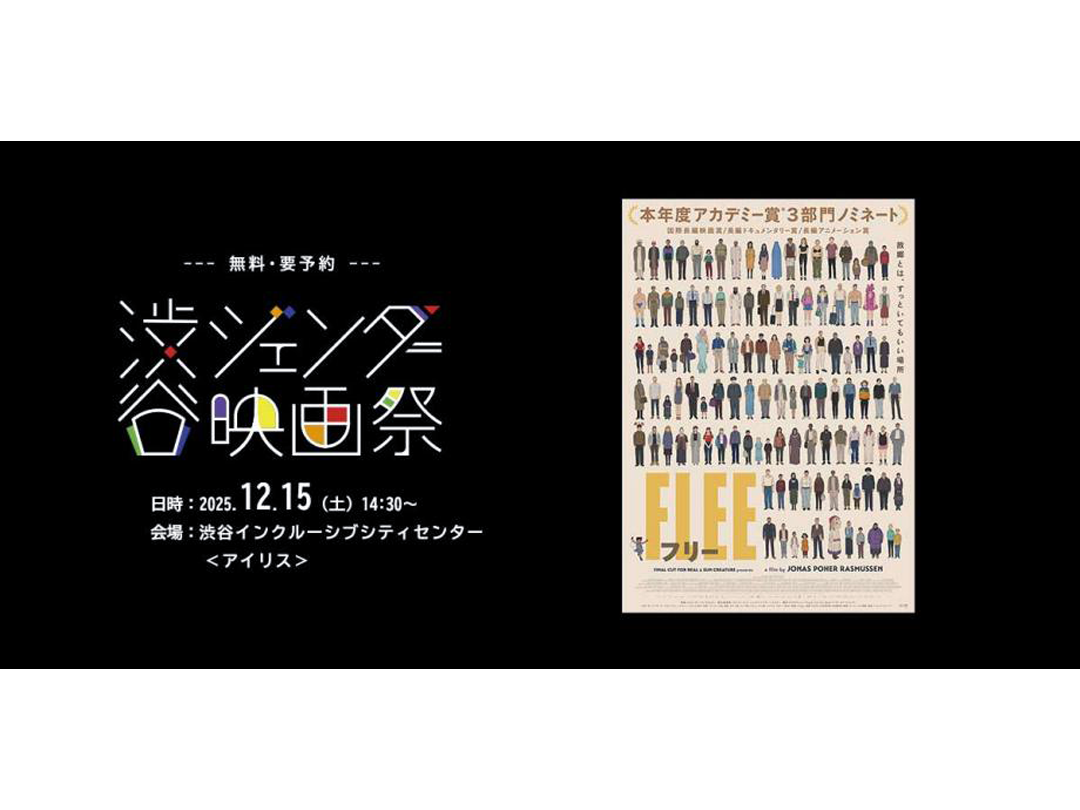
![[Free admission and free entry!] Hare Iro Charm Discovery and Migration FESTA - Find your own lifestyle in Okayama - Organized by Okayama Prefecture](https://biz.shibuyabunka.com/storage/images/event/1760192259.png)
